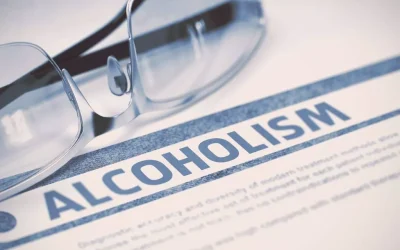Content
In addition, spatial processing was not affected by moderate alcohol consumption. Hence, moderate consumption of alcohol does not affect visual processing per se. We propose that the longer SOAs after alcohol intake are related to changes in mechanisms of target stabilization rather than changes in spatial and temporal sensitivity as has been previously suggested. Excessive drinking affects the way the liver absorbs vitamins needed for healthy eyesight. For example, a deficiency in vitamin A caused by alcoholism can cause dryness, thinning or perforation of the cornea, night blindness, or blindness from retinal damage. A deficiency of vitamin B-1 caused by drinking an excessive amount of alcohol can cause the eye muscles to become weak or paralyzed.
The risk of developing age-related cataracts changes based on the amount of alcohol a person drinks. An Optometry and Vision Science study found that moderate drinking may have a protective effect against cataracts. The study also found an increased risk of developing cataracts among heavy drinkers — those who drank more than two drinks (20 grams of alcohol) a day. In this review, the concept of heavy drinking will be clarified through both quantitative and qualitative descriptions of daily alcohol consumption based on moderate or heavy alcohol abuse. Short-term effects may result from intoxication, which people often describe as “being drunk.” This occurs when alcohol affects the central nervous system. A person can become intoxicated even with moderate drinking and may experience temporary disturbances to their vision.
Examples of eye symptoms to check with a doctor
Alcohol is a depressant which means it slows down the central nervous system and makes people feel relaxed. When intoxicated, alcohol also slows down the rate at which neurotransmitters operate in the brain. As a result, information is not passed between the eyes and the brain as quickly as it usually is when a person is sober. This delayed response leads to slowed eye-muscle coordination, causing people who are under the influence of alcohol to experience blurry vision or double vision. While researchers found a link between heavy alcohol consumption and late stage AMD, they also noted a higher risk in those with genetic predispositions who had 2.70 drinks or more per week.

We’re all for having a glass of wine after a long day at the office or popping open a bottle of champagne on special occasions, but excessive drinking has been proven to lead to severe vision problems. If you find that https://ecosoberhouse.com/article/why-is-my-vision-blurry-after-drinking-alcohol/ you’re experiencing health-related problems from drinking alcohol and are having a hard time cutting back, you are not alone. Quitting alcohol can be incredibly difficult and sometimes dangerous when attempted alone.
Alcohol and optic neuropathy
However, these changes will go away once the alcohol has cleared the system. Your muscles might not move as effectively while you are under the influence of alcohol. When this happens, you may have blurred vision or double vision due to weakened eye-muscle coordination. Alcohol can cause blurry and distorted vision and while everyone reacts differently to different amounts of alcohol, you will likely experience this at some point. There is a delay between the brain and the eyes due to the slow pace of communication between neurotransmitters in the brain which weakens the eye muscle coordination. ► We investigated the effects of alcohol on visual spatiotemporal processing using a backward masking paradigm.

The main feature of alcohol intoxication in the eye is abnormal eye movement. Acute optic neuropathy secondary to methyl alcohol consumption is a serious ocular disease with permanent vision loss or scotoma. Prenatal exposure to ethanol may end in fetal alcohol spectrum disease, where ocular findings are a constant component. Intoxication means the effect of acute consumption of alcohol on different physiologic processes in the body. However, change in visual functions have always been focused in ethanol intoxications.
What to know about the effects of alcohol on the eyes
Although many studies have shown that vision loss is often caused by nutritional deficiency, some medical professionals believe that the toxic effects of alcohol can lead to this condition. You may have had the experience of having too much to drink one night, maybe at a party or celebration; things begin to get blurry as the alcohol affects your brain and vision. This usually goes away after a short time and is temporary, along with a hangover and headache. But what about the long-term effects of drinking alcohol on the eye?
This means that while cutting back on (or avoiding) alcohol might help prevent early AMD from worsening, alcohol cessation may not reverse this eye condition once you have it particularly in late stage AMD. This is why it is not only important to recognize your visual impairments before you get behind the wheel, but also know where to turn when someone else refuses to see his drunk-driving risks. Driving safely requires the ability hone your senses in order to clearly see, hear, and anticipate potential dangers that surround you. When one of these senses is jeopardized, you risk of getting into an accident significantly increases. Although many things can affect your senses—infections, blockages, illness, etc.—the most dangerous yet the most preventable of these sensory-depriving ailments is intoxication.
A study in Australia revealed that drinking more than 20g of alcohol a day results in a 20% increased chance of developing early AMD compared to those who consume no alcohol. People who consider themselves to be “social drinkers” are at risk of developing long-term health issues because of the amount of alcohol they regularly consume. Regularly drinking doesn’t mean binge drinking or getting drunk daily – it can be defined as 3 alcoholic beverages for men or 2 for women daily. A common form is wine, which is a staple for many Americans during their evening meal. The majority of people do not realize that consuming alcohol on a regular basis can be the cause of significant long-term health problems and other life-threatening effects.
Can too much alcohol cause eye floaters?
Similarly, excessive drinking of alcohol can cause premature aging to the vitreous humour, which can trigger the development of floaters. If you want to reduce risks or prevent floaters entirely, we strongly recommend you change your lifestyle.
How alcohol affects the eyes also has to do with its effects on the liver. The sclera is the white part of your eyes and yellow sclera is when the whites of your eyes turn yellow. Having yellow sclera https://ecosoberhouse.com/article/stages-of-alcohol-intoxication-alcohol-toxicity-treatment/ is a common side effect of a condition called jaundice and commonly occurs in heavy drinkers. Yellow scleras can also indicate liver disease, which is also common in people who abuse alcohol.
